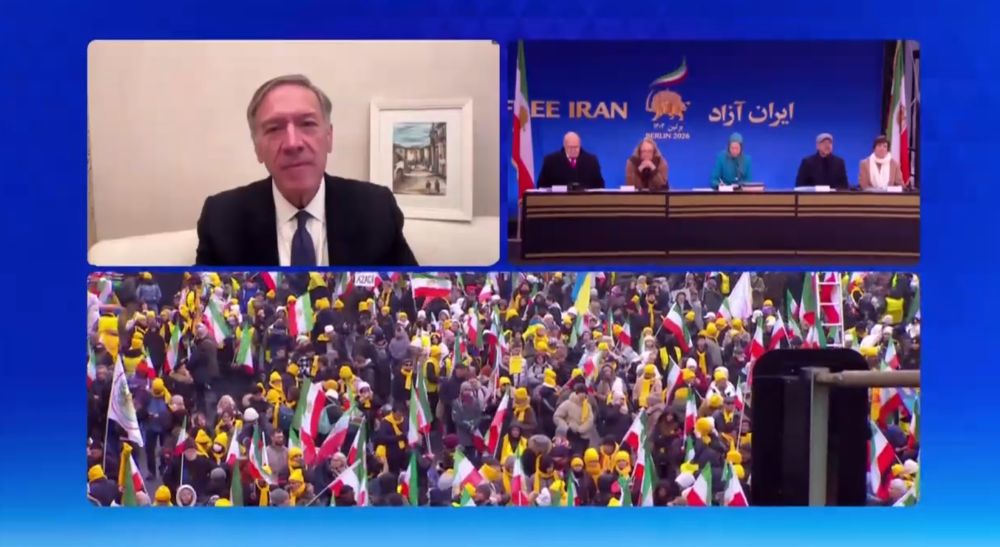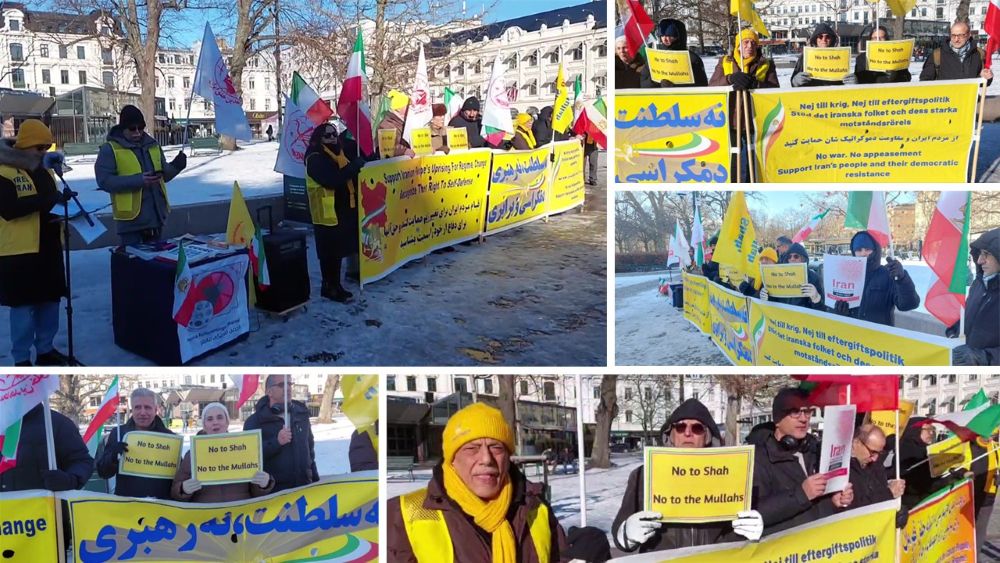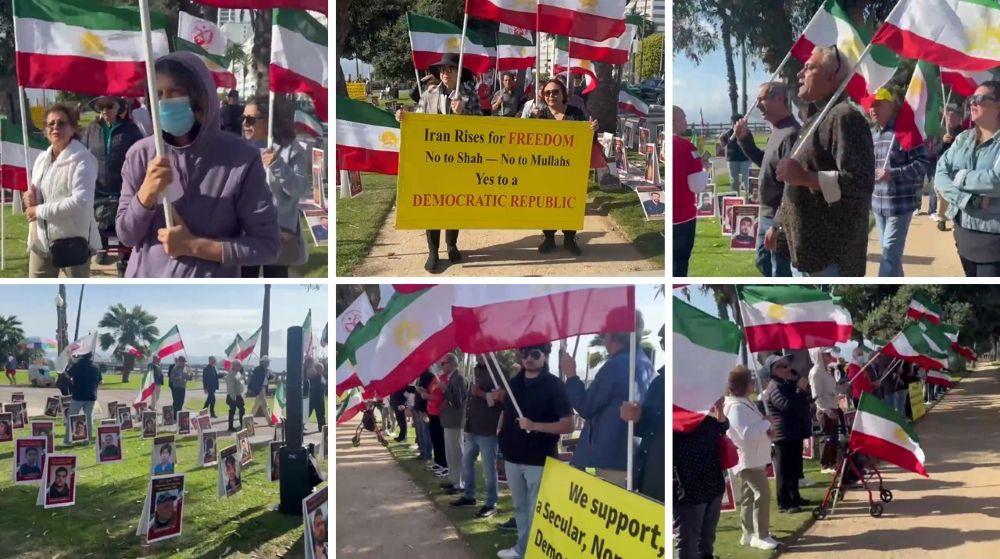On January 10, the US secretary of state, Mike Pompeo, announced that a summit will be held in Poland on Feb. 13-14 and explained: “The purpose of the Poland Summit is to focus on Iran’s influence and terrorism in the region.
The Iranian regime’s reaction to this announcement well revealed its shaky status quo on the brink of its downfall.
I am pleased to announce that the U.S. and #Poland will jointly host the Ministerial to Promote a Future of Peace and Security in the Middle East in Warsaw on Feb. 13-14. It will be a forum for countries to address a range of critical issues toward a more peaceful Middle East. pic.twitter.com/IS8oPP4Aqs
— Secretary Pompeo (@SecPompeo) January 11, 2019
Iranian officials expressed their concern about the consequences of the Poland Summit. Zarif and Araghchi referred to the graves of Polish people who lived in Iran during the World War II, and said: “While Iran saved Poles in WWII, this country now hosts this global summit against Iran, why?”
Also from fear of the consequences of the Poland Summit, Iran’s Foreign Ministry summoned Poland’s Chargé d’Affaires only to see that Poland counts it as her right to host the summit.
The composition of the Poland Summit and its purpose
The secretary of state, Mike Pompeo, has announced the participation of countries from Asia, Africa, Europe, and the Middle East (Israel, Saudi Arabia, Jordan, Egypt, Bahrain, Emirates, and several other countries of the region). He underscored the purpose of the Poland summit as “focusing on the stability in the Middle East and ensuring that the Iranian regime is not a destabilizing influence (force).”
Since the regime’s terrorism, regional interference and missile program have threatened many countries of the region and the world directly or indirectly. It is clear that most countries, especially the regional ones, welcome the Poland (Warsaw) Summit.
Why is this summit held in an EU country?
Experts say that choosing Warsaw as the venue of this anti-regime meeting is a clever move. This will make the EU countries to make a choice: To stand against the terrorism of the Iranian regime or to jeopardize the security of their own people by still appeasing this regime.
The foiled terrorist plots in various European countries during 2018, and the EU’s recent decision of blacklisting and sanctioning a part of the Iranian regime’s Ministry of Intelligence (MOIS) for its involvement in these terrorist activities as well as imposition of sanctions against two Iranian regime’s diplomats, show that EU has to take serious measures against the terrorism of the Iranian regime.
The regime’s internal and international situation on the eve of the Poland Summit
Domestically, the late Dec. 2017 uprising and its continuation up until now, without even one day of non-protest, as well as the advancement of the resistance unit’s activities nationwide, shows how much the people of Iran are decisive in not wanting this regime.
On Sep.23, 2018, speaking in Majlis (Iran’s parliament) Rouhani said: The whole disaster began on Dec. 28 when some people took into the streets and chanted anti-establishment slogans. Then Mr. Tramp became greedy and left the JCPOA, the consequences of which we are still enduring! (Iranian state television)
Internationally, reimposing the most severe sanctions in history on this regime, cutting off its oil exports and crippling its banking and transaction systems, have weakened it even more in confronting the uprising and the resistance units of the MEK networks inside Iran.
Ali Khorram, a former diplomat of the regime, said with anxiety: “the Poland Summit, should be considered very seriously”. (Shabtab news website, junuary12, 2019)
This regime’s weakness is well discerned by the world powers.
U.S. Secretary of State Michael Pompeo recently said: “The United States will no longer protect Iran’s ruling mullahs but we joined the Iranian people in calling for freedom.”
The EU that once proposed SPV to the regime to save it is now sanctioning it.
On the eve of the Poland Summit and on behalf of the Iranian Resistance, which has called for an arms and oil embargo against the mullahs’ religious dictatorship since 1981, Mrs. Maryam Rajavi, the president-elect of the Resistance of Iran urged the international community to take the following steps:
1. Recognition of the Iranian people’s right to resistance to overthrow the mullahs’ religious fascism and achieve freedom;
2. Designation of the Islamic Revolutionary Guard Corps (IRGC) and the Ministry of Intelligence and Security (MOIS) as a whole as terrorist entities by the U.S. State Department and the European Union;
3. Expulsion of the mullahs’ intelligence agents and mercenaries of the terrorist Qods Force from the U.S. and Europe;
4. Referring the dossier of human rights violations in Iran to the UN Security Council after 65 United Nations censures;
5. Supporting the referral of the dossier of the 1988 massacre of political prisoners in Iran to international tribunals;
6. Ouster of the mullahs’ illegitimate regime from the UN and recognition of representation by the Iranian people’s just Resistance;
7. Decisive expulsion of Iran’s ruling religious fascism and its forces from Syria, Iraq, Yemen, Lebanon and Afghanistan;
8. Compelling the government of Iraq to pay compensation for the properties, equipment, arms and camps the PMOI/MEK and the National Liberation Army of Iran (NLA), which had fully paid for them and whose evidentiary documents are available



